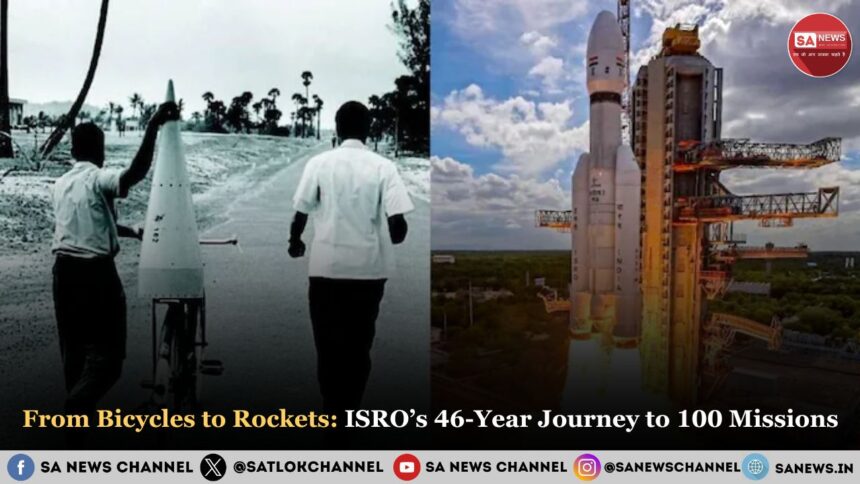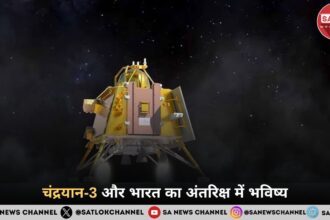On January 29, 2025, the Indian Space Research Organisation (ISRO) achieved a historic milestone by successfully launching its 100th mission, the Geosynchronous Satellite Launch Vehicle (GSLV-F15) carrying the NVS-02 navigation satellite. This accomplishment underscores India’s significant advancements in space technology and its growing prominence in the global space community.
A Journey from Humble Beginnings
ISRO’s journey began in 1969, and its first significant rocket launch occurred in 1979. In those early days, the organization faced numerous challenges, including limited resources and infrastructure. Anecdotes from that era highlight the ingenuity and determination of ISRO’s scientists, who transported rocket parts on bicycles due to the lack of proper transportation facilities. This resourcefulness laid the foundation for what would become a series of remarkable achievements in space exploration.
The 100th Mission: A Landmark Achievement
The recent launch of the NVS-02 satellite is a testament to ISRO’s evolution over the past 46 years. The NVS-02 is part of India’s Navigation with Indian Constellation (NavIC) system, designed to provide accurate positioning services over India and its surrounding regions. NavIC serves as India’s answer to global navigation systems like the U.S. GPS, China’s BeiDou, Europe’s Galileo, and Russia’s GLONASS.
This mission not only enhances India’s navigation capabilities but also signifies the country’s commitment to self-reliance in critical technologies. The successful deployment of the NVS-02 satellite marks a significant step forward in strengthening India’s indigenous satellite navigation system.
Looking Ahead: Ambitious Plans for the Future
Building on this momentum, ISRO has set ambitious targets for the coming years. Chairman V. Narayanan has announced plans to achieve 200 launches in the next five years, a remarkable acceleration compared to the 46 years it took to reach the first 100 missions. This ambitious goal reflects ISRO’s confidence in its capabilities and its commitment to advancing India’s space program.
Future plans include the development of advanced launch vehicles, expansion of the navigation satellite constellation, and preparations for deep-space missions. These initiatives aim to position India as a key player in the global space arena, contributing to scientific advancements and technological innovations.
The Role of Spiritual Knowledge in National Advancement
As India celebrates ISRO’s monumental achievements, it’s essential to recognize the broader context of national development. Technological advancements, while crucial, are complemented by spiritual and moral growth. Sant Rampal Ji Maharaj emphasizes the importance of true spiritual knowledge and devotion in achieving holistic progress. His teachings advocate for unity, peace, and righteousness, principles that can guide individuals and nations toward true greatness.
Also Read: SpaceX to Launch ISRO’s GSAT-N2 Communication Satellite
By embracing both technological prowess and spiritual wisdom, India can aspire to become a ‘Vishwa Guru’ or world leader, setting an example of balanced and sustainable development. The integration of scientific achievements with ethical and spiritual values can pave the way for a prosperous and harmonious society.
In conclusion, ISRO’s 100th mission is not just a testament to India’s scientific capabilities but also a reminder of the nation’s potential when it harmonizes technological advancement with spiritual enlightenment. As we look to the future, let us draw inspiration from both our scientific achievements and the profound teachings of spiritual leaders like Sant Rampal Ji Maharaj to guide our path toward becoming a true ‘Vishwa Guru.’









